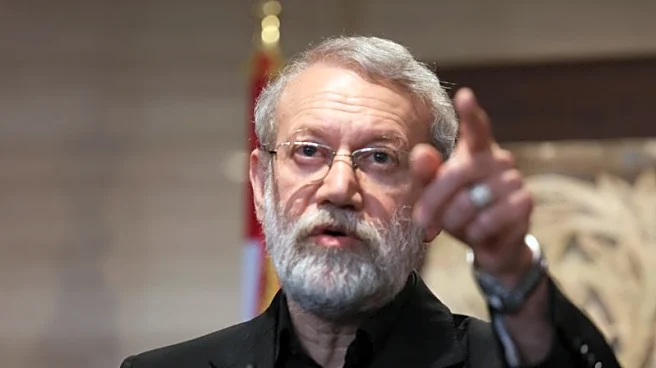What's Happening?
Lithuania has temporarily closed its largest airport and land border crossings with Belarus following incidents involving balloons launched from Belarusian territory. These balloons, reportedly carrying contraband cigarettes, have previously led to airspace
violations and forced closures earlier in the month. The Lithuanian Prime Minister, Inga Ruginiene, announced the closure of the Salcininkai and Medininkai border crossings after the third such incident this month. Airports in Vilnius and Kaunas were also suspended due to these 'smuggling balloons.' The situation adds to existing tensions along NATO's eastern flank, with Lithuania accusing Russia of violating NATO airspace with military aircraft, although Russia denies these claims.
Why It's Important?
The closure of Lithuania's borders and airports highlights the escalating tensions between NATO countries and Belarus, a close ally of Russia. This incident underscores the broader geopolitical struggle in Eastern Europe, particularly in the context of Russia's aggression in Ukraine. The use of balloons for smuggling and potential airspace violations by Russian aircraft are seen as hybrid warfare tactics, raising concerns about regional security. The situation could impact NATO's strategic decisions and increase military readiness in the region. Lithuania's actions reflect a proactive stance to safeguard its sovereignty and security, potentially influencing other NATO members' policies towards Belarus and Russia.
What's Next?
The Lithuanian border crossings are scheduled to reopen soon, but the country's National Security Commission is set to meet to discuss further measures against the smugglers. As tensions remain high, further accusations of airspace violations linked to Russia are likely. NATO members, particularly those on the eastern flank, may increase diplomatic and military coordination to address these security challenges. The situation could lead to more robust NATO responses, including potential sanctions or increased military presence in the region.

















